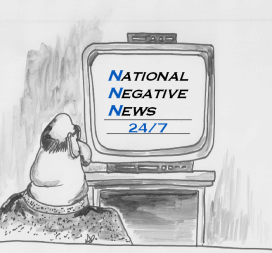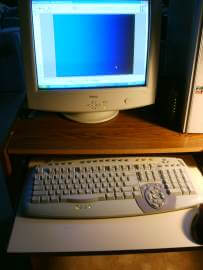Strong Mindset tip: Borrow from history.
 In the fifth grade, I had a terrific history teacher. Her name was Mrs. Smith.
In the fifth grade, I had a terrific history teacher. Her name was Mrs. Smith.
She was amazing.
She had this great big hand-painted canvas map that hung on the wall covering the chalkboard.
She would dart about in front of it flailing her arms around enthusiastically and pointing
to it with her yard stick, all the while regaling us with stories about the travels of Marco Polo on the Silk Road to the Far East.
I was captivated.
I don’t know if it was just me, but in later years, as I reached high school, my experience in the halls of higher learning seemed way more boring in comparison.
To this day, now over 50 years later, I have never forgotten Mrs. Smith. I never forgot my interest in history either in fact, history, in an oblique way, infused my life’s work.
No, I’m not a history professor or an archivist, but I am a researcher of sorts. I’ve spent a considerable amount of time looking at how a person’s mindset could be made stronger. I needed it for myself.
I’m sure you’ve heard it said, “We must learn from history or we’re bound to repeat it.” I believe repeating it can be a really good thing, but it has to be the right history. Now it may look like my position on this goes against conventional wisdom, so allow me to explain.
Years ago, when I was a young man, I became involved in a business. I always wanted to be an entrepreneur but soon realized that pursuing success wasn’t as easy as it looked. Although I tried to follow all the advice of the self-development “experts,” it still didn’t get me much closer to where I wanted to go.
I thought there had to be a better way, and eventually I had an epiphany: history—personal history, to be exact—held the key.
History, I found out, has a strong truth element to it. If it didn’t, it would not be history. It would only be a fable. I learned that I can study history from one of two different realms. One traditional and one—well, not so traditional one. Most history is not about you and me. It’s about those who have gone long before us. It’s their story—all great stuff for sure—but their story is not yours or my story and never could be. We all have our own.
So I thought it’d be more valid to spend my energies examining my own history, but it had to be a specific part of my history.
Like a lot of people, I wanted more success. So I decided to zero in on that one part of my history that detailed my own success footprint, if indeed such a thing even existed. Of course, no organized tool yet existed for reverse-searching one’s own past successes in an organized and focused way, so I had to invent one.
I knew it had to be more than just a list of accomplishments. For me and most people I knew, that would be a tall order anyway. It always seems easier to look at others rather than ourselves. Especially for me since I didn’t feel very accomplished or successful at anything anyway.
Can you relate to that?
The format I eventually stumbled on was simple enough: Just recall times in the past when persistence was a factor in the doing of a task. I used a set of word keys to trigger different parts of my memory. I hoped that it would reveal something about how success happens. The standard theory, as we all know, is that “success breeds more success.”
Just one problem.
Most of us seem to be able to recall our failures a hell of a lot faster than our successes. And so it was with me. But the word-keys that were assembled before me kept bringing me back to the detailing—often even begrudgingly—of my successes with the dominant theme of persistence. I’ll have to admit that all that searching was a lot of work.
Guess what?
It turns out that, despite our failures, we’ve all had at least some successes in our lives, or we probably wouldn’t be around today. We’ve all had to overcome at least some difficulties. That’s what made up the stories of how I learned to ride a bike, tie my shoelaces, and, later on, fix my own car. The stories I uncovered while using this new tool allowed me to clearly realize that I had indeed done a pile of great stuff. But then I experienced something else. The uplifting feeling of breaking through to accomplishment began to replay in my gut brain just as it had during the actual event, even though it might have been years in the past!
It was pretty cool. I was experiencing my past success history as if it were happening now, complete with all the trimmings: I felt increased self-confidence, especially in communication with others. I was feeling more relaxed, and I laughed a lot more. (Today, my wife and I laugh and giggle at different times throughout the day for even the smallest of things.)
I noticed a lot of things had changed about me. For one thing, I felt more powerful. I developed a mindset that was way more persistent than before. It was somewhat the same with others that I had persuaded to try using my little word tool.
Those results were so beneficial that I decided to perfect my little invention, which eventually, some 25 years later, is now known as the H.E.R.O. Tour. It’s an online virtual work space where you’ll be guided to look at your own value in the rich mirror of your past accomplishments. It promises to increase your own self-belief and personal confidence tremendously.
You can find a full explanation of it here.
More power to you.
![]()

 “Don’t watch the news!”
“Don’t watch the news!”
